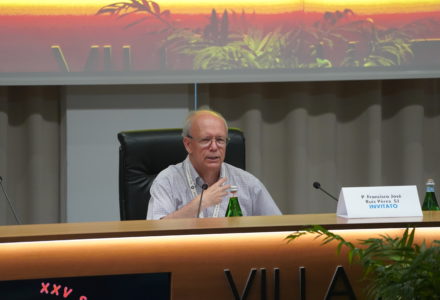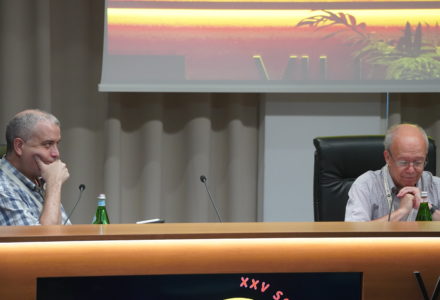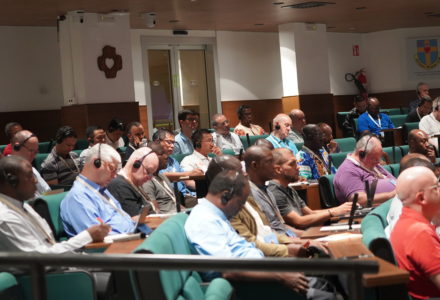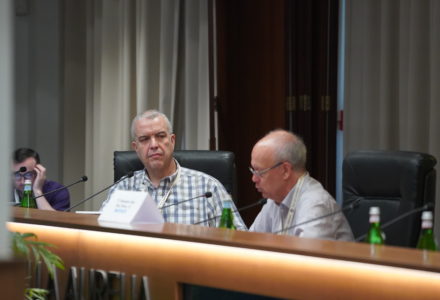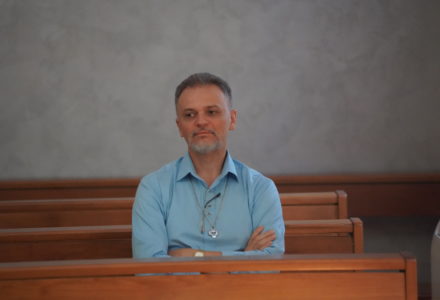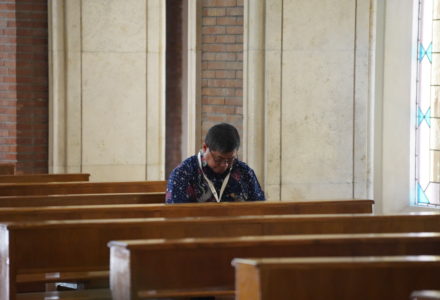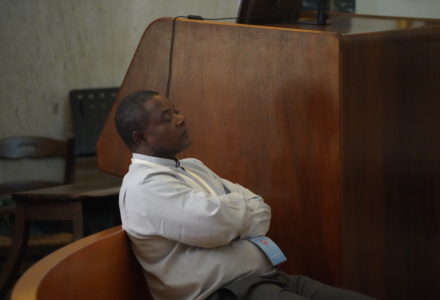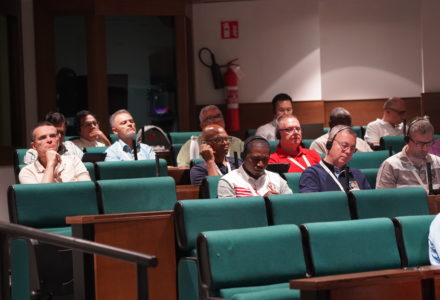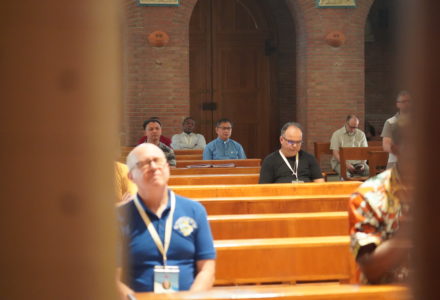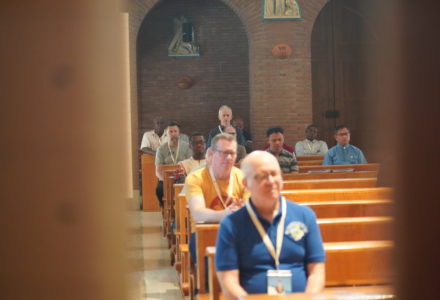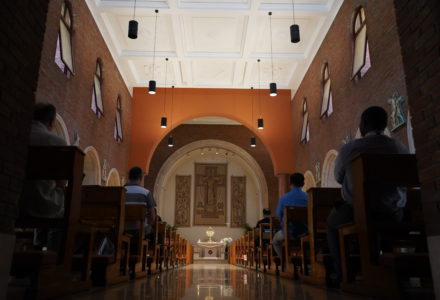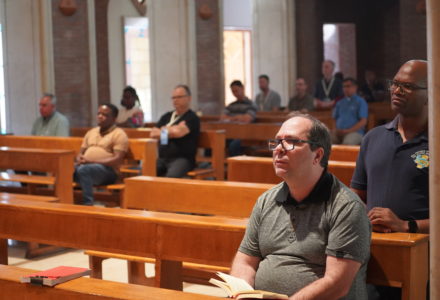Healing the fragmentation of today’s world
The second day of the chapter was dedicated to spiritual retreat. Fr. Jose Ruiz Perez, SJ encouraged to embrace the process of spiritual conversion, to search for the God of unity.
The second day of the General Chapter was dedicated to a retreat given by Fr. Francisco José Ruiz Perez, SJ, a Jesuit priest born in the Canary Islands and currently living in the Basque Country. Inspired by the Chapter theme, “Called to be one in a transforming world”, Fr. Francisco reflected on the reality of fragmentation strongly present in today’s world, and how to overcome it with the Good News given by the Lord.
He highlighted some present symptoms of fragmentation, such as war and conflicts among nations, divisions within the Church, and the spread relativism which challenges unity and common values. Although the emerging globalization gave us a sense hope for a more united world, we are in fact experiencing a time of desolation. However, this should not discourage us; human existence is made of a movement of sin and grace, desolation and consolation. As people of faith, we are called to return to Christ and his Gospel as a source of grace to bring about communion and unity. This is a process of conversion, of continuous transformation.
According to Fr. Francisco, every person in a search for identity, as in the story of the “two prodigal sons” (Luke 15: 11-32). Similarly to the younger son, we may fall into the “sin of youth”, thinking only on our personal interests, grabbing the inheritance to search for a sort of identity in individualism; or we might identify ourselves with the older son, falling into the “sin of old age”, closing ourselves in pride and personal securities, unwilling to accept the other. Jesus reveals that the merciful Father is the answer; to his selfish young son he proposes gratuity, and to the resentful old one he proposes reconciliation. Gratuity and reconciliation are the key to heal the fragmentation of today’s world. God is Trinity, he lives in us and we in him. In God, humanity finds a new identity of relation, a trinitarian identity which creates among us a true bond of fraternity.
Fr. Francisco invited us to think of our Dehonian charism and reflect on the following questions:
1. Where and in who do we find this fragmentation manifested?
2. What should be our response to this fragmentation?
In the afternoon, he proposed a on meditation on unity in diversity. Taking on the example of God’s creation, he stated that diversity is not chaos but harmonious symphony. In his spiritual exercises St. Ignatius was attentive to what is unique in each person, a reality that cannot be repeated. God knows our nature and he will give to each person precisely what he or she truly needs.
Looking at Jesus, the fulness of God’s revelation, we come to understand that his movement is both to come down (kenosis) and to go horizontally and embrace all, particularly the marginalized. Fr. Francisco proposed the example of the disciples of Emaus as a process of spiritual conversation which can lead us from desolation to consolation, from solitude to communion and unity. In fact, it is in through the Eucharist that Jesus gives us a example of new presence. Now, more than speaking about him, we can in fact speak with him because he is in us. Eucharist is the celebration of unity which Jesus desired to establish with us forever. In a Eucharistic life, solitude ends and community is born.
Finally, Fr. Francisco encouraged us to embrace the process spiritual conversion, to search for the God of unity. It is a process that will help us rediscover our salvation history, overcome desolation, open ourselves to new possibilities, and look at the future with renewed hope.
Following the meditation, we were sent to the chapel for Reparatory Adoration with the following questions:
1. In the context of fragmentation, how did you feel impelled in the personal and communal level?
2. If the General Chapter is a meeting of brothers in permanent communication, how can we make this a spiritual conversation, a communication in the Spirit?
Thank you, Fr. Francisco!




